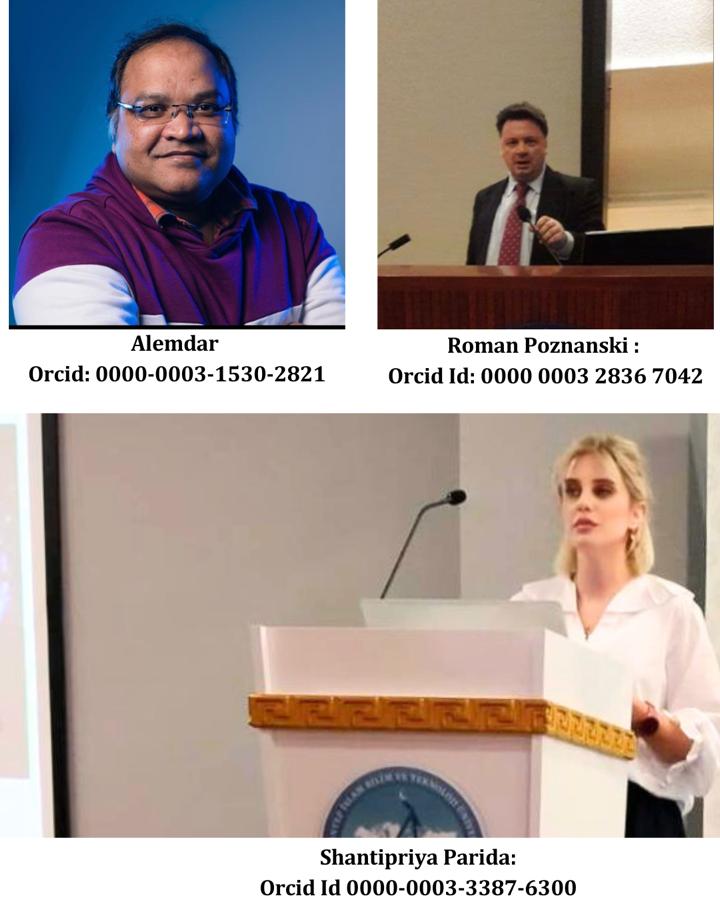A research team led by senior artificial intelligence scientist Shantipriya Parida, medical researcher Eda Alemdar, and medical researcher and computational systems neuroscientist Roman Poznanski, working at Europe's largest artificial intelligence laboratory, published a groundbreaking article in the Journal of Multiscale Neuroscience. This study investigated the role of time consciousness in reflecting knowledge in the domain of functioning. Researchers have proposed that consciousness consists of various functional units, which are complex structures organized in a specific hierarchy called holons. They offered a new approach to measuring subjectivity by highlighting the “Information Quantum” functionality through this theoretical framework, dynamic organicity theory (DOT). The findings of the study show that artificial intelligence can understand emotional capacity by detecting decision-making intentions. This reveals that artificial intelligence is not only limited to the data-based learning processes observed in deep learning, but may also have the potential to make conscious decisions through emotions, like humans.

The Goal is to Go Beyond Deep Learning
Traditional deep learning algorithms are limited by their “black box” nature and dependence on large data sets, making it difficult to understand their inner workings. Parida, Alemdar, and Poznanski's research addresses the limitations of these deep learning algorithms and the impact of these algorithms on dirty data. The study highlights the difficulties in enabling artificial intelligence to go beyond pure learning capabilities and achieve meaningful results.
The research states that deep learning systems require large amounts of high-quality data, but this data may be incomplete, inaccurate or noisy. This makes it difficult for artificial intelligence to make reliable and explainable decisions. Shantipriya Parida, Eda Alemdar and Roman Poznanski argue that these limitations must be overcome with non-computational approaches in order for artificial intelligence to create conscious experiments.
Conscious Artificial Intelligence Research with Dynamic Organicity Theory
Parida, Alemdar and Poznanski show how conscious artificial intelligence can be created using the irreducibility of dynamic organicity that comes with self-referential causal trapping through Quantum Potential Energy and the montage of Negentropic action as a change in functionality. This theory explains how time consciousness arises in the domain of functionality in information channels due to functional interactions at different scales.
The research explains how quantum information biology and dynamic organicity can enable AI to create pre-cognitive experiences resulting from functional rather than physical interactions. DOT points out that consciousness is not related to neural activity, but to information activity, which is a non-classical approach. Information processing is the classical way that a computer takes information and passively follows it into a program to produce an output. In contrast, information activity produces temporary meanings that are used to change the state of the physical system at a certain scale, enabling artificial systems to understand rather than pure automation.
Brain Complexity and Epistemic Subjectivity
The research examines the multilayered and dynamic structure of the brain and consciousness. Parida, Alemdar, and Poznanski highlight how quantum potential energy fluctuations in the brain affect consciousness and explain how consciousness arises under thermodynamic constraints.
This study elaborates on the connection between the brain's use of energy and the formation of consciousness, detailing how the complex structure of the brain works at different scales and how these functions contribute to precognitive experiences. Consciousness arises due to quantum potential energy fluctuations and thermodynamic constraints, which are vital for the functioning of the brain and the development of artificial intelligence conscious systems.
New Horizons in Science and Technology
This work could break new ground in artificial intelligence and consciousness research, enabling future artificial intelligence systems to achieve quantum-like consciousness and understanding capacities. This research, led by Parida, Alemdar and Poznanski, reveals the potential of developing new models that exceed the current limits of artificial intelligence and have understanding and awareness abilities. This research had a great impact in the scientific world.
This discovery could shape the future of artificial intelligence technology and open the door to the development of artificial intelligence systems equipped with quantum-like consciousness. The scientific community is excited about the innovations of this work beyond artificial intelligence technologies.
Download the full content:

Kenya.
Email: office@iarconsortium.org
Editorial Office:
J.L Bhavan, Near Radison Blu Hotel,
Jalukbari, Guwahati-India